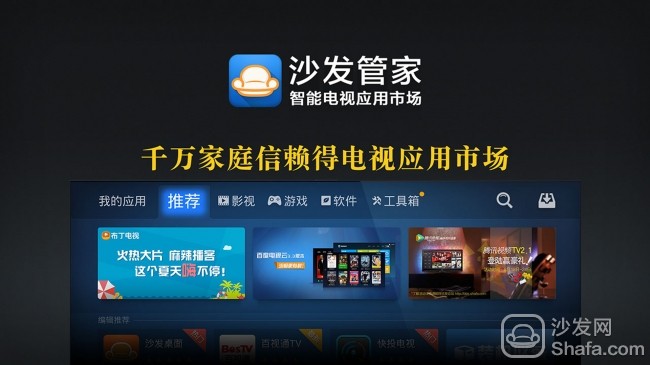Internet Wars: Wireless Network Hype 5G Wireline Fixed Network Gigabit

Wireless networks are speculating on 5G concepts, while wired fixed networks are launching Gigabit broadband.
As early as July 2012, Google launched Google Fiber, a gigabit broadband service, and it expects to launch Gigabit broadband in 34 cities in the United States by 2015. In China, although basic operators also proposed the concept of Gigabit, 100M broadband, they are more concentrated in 10-20M broadband. In contrast, private companies such as Dr. Peng, Founder Broadband and Century Internet recently launched high-profile launch of Gigabit broadband.
So, why do private companies fight Gigabit broadband products with basic operators and do it for users? The author communicated with basic telecom operators, private enterprises, and related experts. The following is the information collation.
Why are you eager to push Gigabit broadband?
It is about to obtain a virtual operator license Dr. Peng and Founder Broadband have deployed Gigabit broadband in first-tier cities such as Beijing and Shanghai, mainly targeting high-end and small- and medium-sized enterprises, with a monthly fee of less than 600 yuan, and through broadcasting and TV companies. Hua Digital Media Co., Ltd. cooperated to increase the speed of "video boxes" and other products. The reasons for the launch were as follows:
1. Differentiate for survival.
According to the latest data from the Ministry of Industry and Information Technology, there are 200 million fixed broadband subscribers in the country, of which only 86% are broadband access users above 8M. China Telecom’s public broadband subscriber data is 106.6 million and China Unicom is 68.742 million. From this, it can be deduced that China Mobile (formerly Tietong), Gehua Cable, Broadband Link, and Great Wall Broadband have only 30 million subscribers. From the data point of view, broadband access by telecommunication operators occupies over 90% of the market.
At present, Dr. Peng (including Broadband and Great Wall Broadband) covers more than 60 million users in 81 cities. And Founder Broadband and several other private enterprises have relatively fewer broadband coverage cities and users. According to analysts inside the telecommunications industry, if private enterprises compete with basic operators on the scale of their subscribers and basic services, they are not able to "out-pace", and pushing "Gigabit fiber" broadband is also a means of differentiation.
2. There is a demand in the market.
"At present, in the high-end user market, such as villas, high-end apartments, there have been 100 million trillion can not meet the bandwidth requirements." Founder broadband network services company COO Rao Hongfa said in an exclusive interview with the author. The greater use of Gigabit broadband is to make speed a bridge for connecting real-world data and virtual data. In addition to the daily use of smart terminals for sending and receiving information, business meetings, and shoplifting, Gigabit future applications will More emphasis on medical, education, somatosensory, smart home and other aspects.
"Private enterprise broadband access is less than 10% of market share." Professor Zeng Jianqiu of Beijing University of Posts and Telecommunications believes that due to the development of mobile Internet, the broadband market is still not saturated, and the competition for users will be more intense in the later period, and private enterprises will have greater potential for broadband growth.
3. Only test water in first-tier cities.
Dr. Peng Yang, Chairman of the Board of Directors, said in an exclusive interview with the author that Dr. Peng will focus on the distribution of Gigabit broadband in China's first-tier cities, targeting high-end users.
Rao Hongfa also revealed that China’s first Gigabit broadband project launched by Founder Broadband has taken the lead in renovating the relevant lines in the two communities of Beijing’s Renjishanzhuang and Qianhejiayuan. Acceptable users will install the equipment. In addition to Beijing, Future Founder’s broadband will be transferred to Shanghai. Wait for the promotion of first and second-tier cities and plan to provide Gigabit broadband product access services to more than 100 communities in the capital by 2015.
Century Connect CEO Meng Pu also said that the use of cloud computing technology, the introduction of "extreme broadband" plan to build "Gigabit broadband" network construction in China.
4, policy support
The U.S. began implementing an ultra-broadband program in 2010 and proposed that at least 100 million U.S. households can use affordable broadband by 2020; British Internet giant Virgin Media has launched a Gigabit plan to build the world’s fastest broadband, and its broadband rate Up to 1.5 Gb/s (Gigabits per second) means that a 3D movie can be downloaded in seconds. Not long ago, Korea's largest broadband service provider, SKBroadband, began offering 10-Gigabit (10Gbps) fiber access services.
In China, in 2013, the Beijing Municipal Government issued the "Broadband Beijing Action Plan (2013-2015)" and proposed that by the end of 2015, the community's broadband access capability will exceed Gigabit. For private enterprises, the launch of the Gigabit broadband plan will help obtain regulatory support, better access to residential communities and commercial real estate, and financial support.
How can private enterprises promote Gigabit broadband?
1. "Box plan".
Dr. Peng promoted family broadband by bundling “barley boxes†and 4K televisions. Dr. Peng Wu, executive vice president of the company, said to the author that at present, there are more than 600,000 boxes of barley, and over one million at the end of the year; Dr. Peng also launched the “Gigabit Application Fund†to support ultra-high definition video, smart hardware and software based on Gigabit cloud applications. Product development.
“Founder Broadband has a strategic transformation, and the box will serve as an entrance for smart households. In the future, there will be model innovations in this area.†Rao Hongfa told the author that Founder Broadband will launch a similar box (named “Lejia Boxâ€) and integrate such interactions. Games, etc., users can play video games and voice interactions while playing games with friends and family.
According to reports, the positioning of "Lejia Box" focuses on the Founder broadband community home users aged between 18 and 45. Founder Broadband and China Digital Media broadcast control platform to promote video and audio content.
2, price war.
Over the past 10 years, hundreds of private enterprises in the country have entered the broadband market. However, there are less than 10 larger ones. Private enterprises entered the telecommunication broadband market, the most controversial is the "ultra-low price."
Shang Xiaopu, a veteran of the telecommunications industry, told the author that the private companies' push for broadband prices was originally very low. The Gigabit fiber network has a monthly price of 500 yuan. Even for SME services, the actual price is very low. "Gigabit broadband is actually a print-like price war," says Shang Xiaopu. Currently, Gigabit broadband, which is popular on the market, is actually a marketing gimmick for private enterprises.
Are private companies pushing "Gigabit Broadband" reliable?
Gigabit broadband has just started to launch, and there are media openly questioning whether speed can reach Gigabit. Under the offensive of public opinion such as “false broadbandâ€, private broadband was pushed to the cusp. Wu Shaoyan told the author that two years ago, Dr. Peng and other private companies were pushing 100M broadband. At that time, some people questioned whether it was a conceptual hype. Today, basic operators are deploying 100M fiber in large areas.
However, the author's interview also explained that the road to Gigabit broadband is not easy to go. The main problems are:
1, Gigabit broadband rate problem
The Ministry of Industry and Information Technology stipulates that “Gigabit Broadband†refers to “the transmission rate of information on the link from the broadband access point BRAS to the user terminal of the broadband access service provider reaches the Gigabitâ€.
"In fact, the speed of the network does not reach Gigabit at all." A basic operator has a wait-and-see attitude towards Gigabit Broadband. "Gigabit Broadband" is still only at the conceptual stage. From 512 kbps to 2 mbps in China, the bandwidth has been increased four times but it took nearly five years, and it takes at least 5-10 years from 20 trillion to 1,000 trillion.
2, Gigabit broadband applications less.
Rao Hongfa told the author that Founder Broadband began broadband access more than a decade ago, and Gigabit access was recently landed. From the perspective of user demand, the Gigabit market is still under cultivation. Currently, there is not much demand for users. Currently, it is mainly targeted at small and medium-sized enterprises. And high-end users.
However, with the popularization of 4K TV, high-definition video conferencing, high-definition video surveillance, 3D games, cloud computing, Internet of Things, and big data, the application scope and scenario of Gigabit broadband will gradually become popular. Wu Shaoyan, for example, said that "in the future, users can try on clothes in supermarkets, which is a typical application."
3, the industrial chain has not started.
Gigabit fiber is inseparable from the linkage between upstream and downstream industry chains. Zhu Weiquan, general manager of Hengtong Optoelectronics Marketing Headquarters in Beijing, said in an interview with the author that high-speed broadband has indeed changed people’s lives, but broadband speeds will increase and costs will increase. Currently, Gigabit broadband is still in the “conceptualized†era. If the user does not come up, the difficulty of popularization will increase.
4, ordinary users "look for pleasure"
"Speed ​​increase without price increase" This is a basic operator's broadband marketing strategy and has been generally accepted by users. However, broadband fees of around 600 yuan per month are still difficult for ordinary users to afford. At the same time, Gigabit broadband access is often stuck in the "last mile" residential community or commercial office building.
Therefore, for the "access fee", "maintenance fee" and many other property charge links, as well as the definition and testing standards for Gigabit broadband, regulatory authorities are required to implement regulations and implement supervision. Otherwise, for domestic users, Gigabit broadband is still a mirror.
Recommended installation sofa butler Download: http://app.shafa.com/
